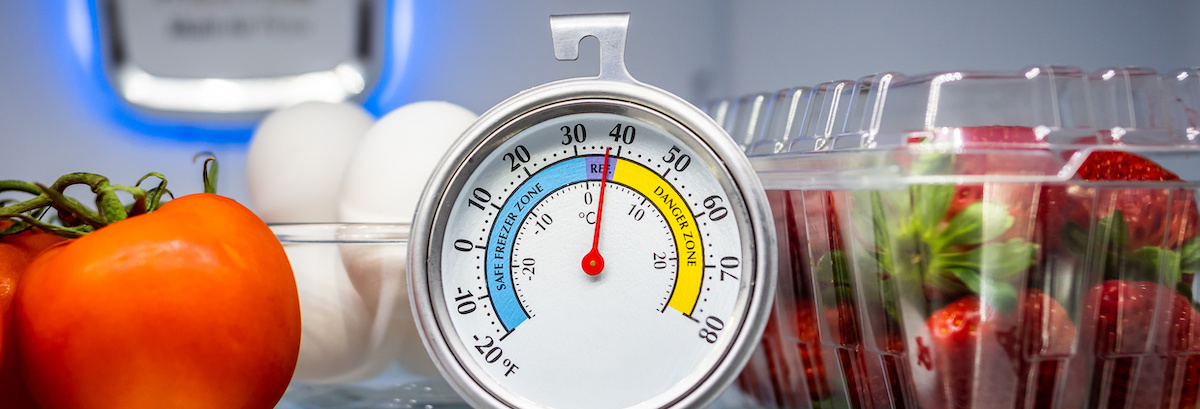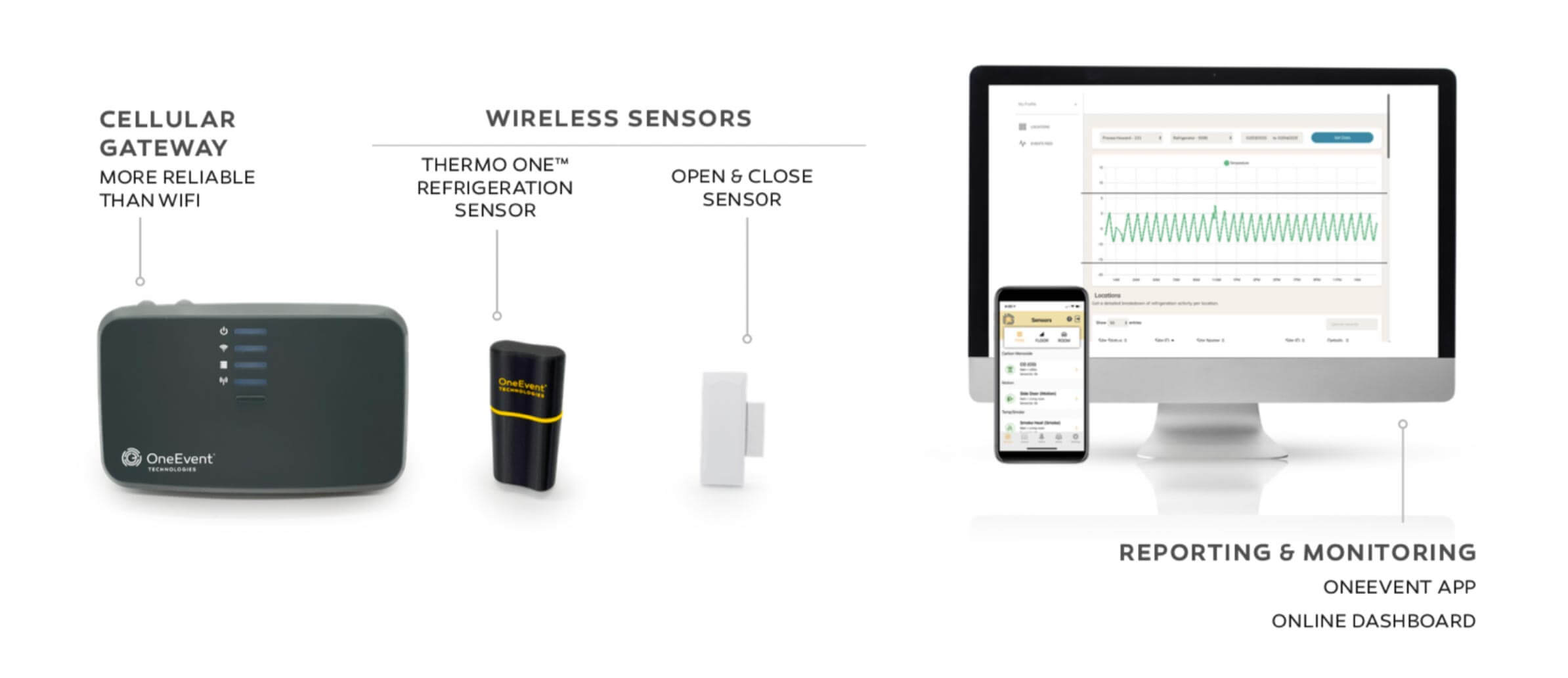Refrigeration monitoring is crucial for food safety for several reasons:
Preservation of perishable foods: Refrigeration helps slow down the growth of bacteria, mold, and other pathogens that can cause foodborne illnesses. By maintaining proper temperatures, refrigeration prevents or significantly reduces the reproduction of these microorganisms, extending the shelf life of perishable foods.
Temperature control: Refrigeration monitoring ensures that foods are kept at appropriate temperatures to inhibit the growth of bacteria. Most perishable foods require specific temperature ranges to remain safe for consumption. For example, refrigerated foods should be stored at temperatures below 5 degrees Celsius (41 degrees Fahrenheit) to slow bacterial growth. Monitoring allows businesses to identify and address temperature fluctuations or failures promptly.
Prevention of cross-contamination: Refrigeration helps prevent cross-contamination, which occurs when harmful bacteria from one food item spread to another. By storing foods at proper temperatures, the growth and spread of pathogens are minimized. For instance, storing raw meats separately from ready-to-eat foods like fruits and vegetables reduces the risk of contamination.
Compliance with food safety regulations: Refrigeration monitoring is often a requirement enforced by regulatory bodies, such as health departments and food safety agencies. These regulations aim to ensure that businesses handling food maintain proper refrigeration practices to protect public health. Monitoring temperature levels and keeping records of temperature logs demonstrate compliance and facilitate inspections.
Quality assurance: Refrigeration monitoring not only enhances food safety but also helps maintain food quality. Many foods, such as fresh produce, dairy products, and meats, are susceptible to spoilage and degradation when exposed to incorrect temperatures. Monitoring allows businesses to identify potential quality issues early on, preserving the taste, texture, and nutritional value of the stored foods.
Consumer trust and brand reputation: Proper refrigeration practices and monitoring contribute to building consumer trust and maintaining brand reputation. Consumers expect the food they purchase to be safe and of high quality. By employing effective refrigeration monitoring, businesses demonstrate their commitment to food safety, which can enhance customer confidence and loyalty.
Overall, refrigeration monitoring plays a vital role in preventing foodborne illnesses, maintaining food quality, complying with regulations, and fostering consumer trust. It is an essential component of food safety management systems in various settings, including restaurants, food processing facilities, grocery stores, and homes.
With the OneEvent® Refrigeration Monitoring System you can be certain that food is refrigerated at safe temperatures. When temperatures exceed pre-set limits, staff is notified. And, with the OneEvent Thermo Heartbeat® you will be alerted up to 30 days in advance before a refrigeration unit will fail to keep food safe.
If you add it all up, with OneEvent® refrigeration monitoring you can save money by reducing loss, time savings and preventing expensive rush service calls. Plus, our customers tell us that they, and their staff, sleep better at night knowing OneEvent has their back.



